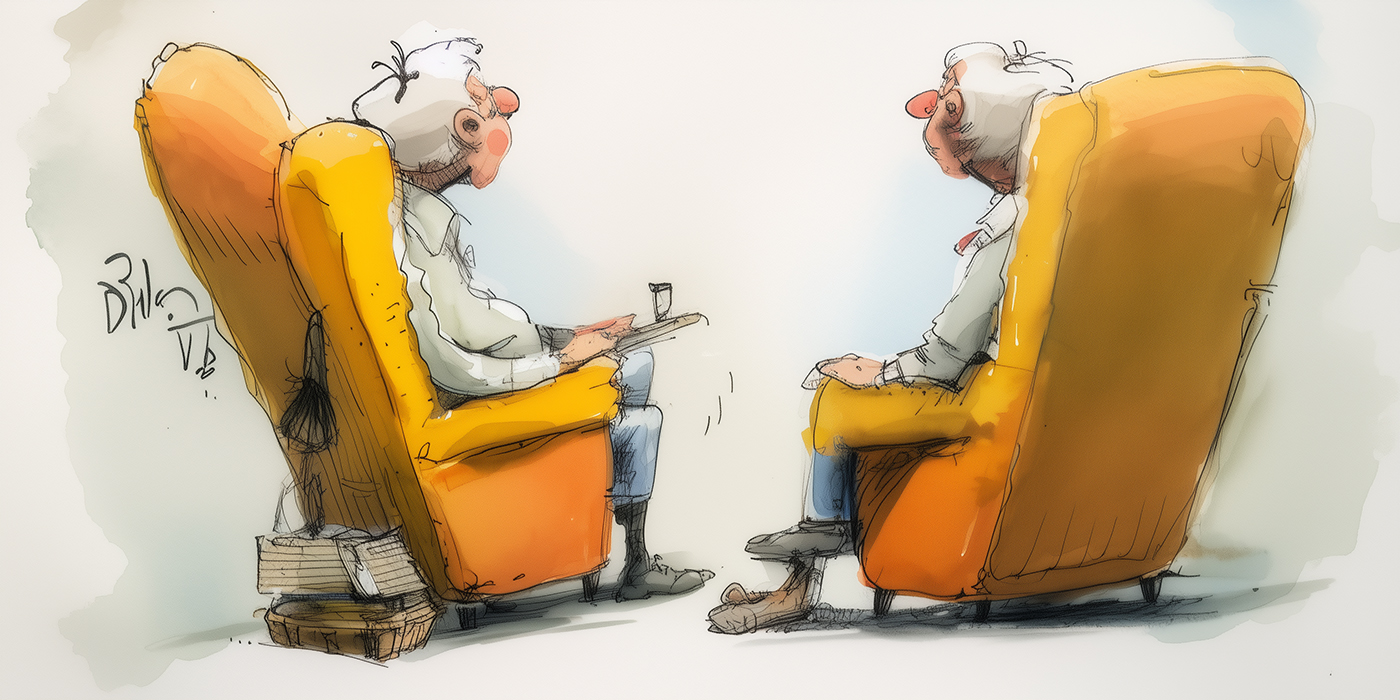I’ve always had a large ego, which never allowed me to acknowledge that I needed God. I looked down on people of faith, thinking they were foolish or weak, and that they used the notion of God as a crutch. I would bristle with anger when watching a football player who had scored a winning touchdown and then gave the credit to God. Why would God choose one side to win and not the other? It made no sense to me. Looking back, I see that anger and my negative attitudes toward people of faith as jealousy. The people who had faith in God seemed happy; why was I so miserable? But what’s wrong with getting comfort from a belief in a Higher Power who loves us and guides us to do good?
I’ve always tried to play God, thinking I didn’t need anyone’s help. That thinking hasn’t gotten me to the place in life where I thought I would be. I’ve made a lot of poor choices by relying on my own self-will. But now I realize that without God, I would be lost in a hole of depression, still acting out, still lying to my wife, and still trying to convince myself that I could stop lusting on my own.
Over the past 16 months, I’ve come to realize that a Power greater than me has been working in me. I now recognize that it is God who is guiding me to make better choices, and who is giving me a sense of peace that I haven’t had for a long time. I now find myself asking what God would want me to do in certain situations.
“I am my brother’s keeper” is a phrase I’ve always thought I believed in, but I never practiced its message. I was always out for myself, and would help others only if I could get something in return. I’ve always sought to be successful and have resented other people’s success, thinking, “I’ve worked harder than him, I’m smarter than her, I deserve the rewards more than that guy.” But thinking I was smarter and couldn’t learn from others who were leading happy and joyous lives pushed me deeper into isolation. I was great at criticizing others, because I didn’t want to face what was wrong with me. Jealousy is a big weakness for me. With friends who are financially comfortable, I’d think, “He has a lot of money, but something’s missing. I may not be rich but at least I’m happy.” It didn’t matter whether my friend was happy or not. To mask the unhappiness in my own life, I had to criticize others whose lives were working. In reality, I wasn’t smarter at all.
I’ve been blocking God from my life by destroying little pieces of myself over the years. My fear of discovering who I am and what makes me tick put me in a downward spiral of isolation and self-hatred. My compulsive acting out was my relief from all of my troubles—or so I thought. I couldn’t see how separated I had become from others, especially from my wife, who always showed me love and understanding. I built up a lot of resentment toward her for that. Sometimes I even blamed her for my isolation. Early in our relationship, we watched porn and acted out together. But she understood early on that it was dark, and she felt disconnected from me as a result. She didn’t want any part of it. But I couldn’t give it up and resented her because it was now something I had to do alone and in secret. The shame and guilt I felt caused more resentment. I would get angry with her and lash out. I didn’t see that I had lost that connection with her, and with God.
My understanding of God today is that there are two voices in my head. One is my voice, telling me that I should be resentful when things don’t go my way, that it’s okay to be jealous, fearful, angry, lazy, hurtful, mean, deceitful, or dishonest. My voice believes I don’t have any real problems, and those I do have I can solve on my own. The other voice is asking me to be kind, thoughtful, giving, understanding, generous, trusting, and honest. This voice tells me to do the right thing; it comes from the light rather than the darkness. It tells me to surrender. I hear this voice in the shared experiences of the group, telling me I’m not alone and it’s not all about me all of the time. It tells me there is hope and that I don’t have to depend on myself to solve my problems. It says, “Trust me and I will help you.” Today I am beginning to recognize this voice as God’s voice.
I’ve come to realize that depending on God is a way of gaining true independence. I had been trying to play God myself and in doing so, losing the connection with others, especially with the people who are closest to me. I know now that I can’t stop my addiction on my own. I realize now that turning to goodness, caring, love, and service is a liberating feeling. In Step One, I realized that there is a power greater than myself. I am powerless; I couldn’t stop my addictive behavior. Step Two, together with a fairly good length of sobriety, the power of meetings, and the shared experience with others in recovery led me to recognize that there is a positive Power that is restoring me to sanity. I could see progress. Surrendering my will to a Power greater than myself has taken me to Step Three—and I can honestly say now that God is a crutch. A crutch I need to walk in His path, and I am willing to turn my life and will over to Him.
Rick C.






